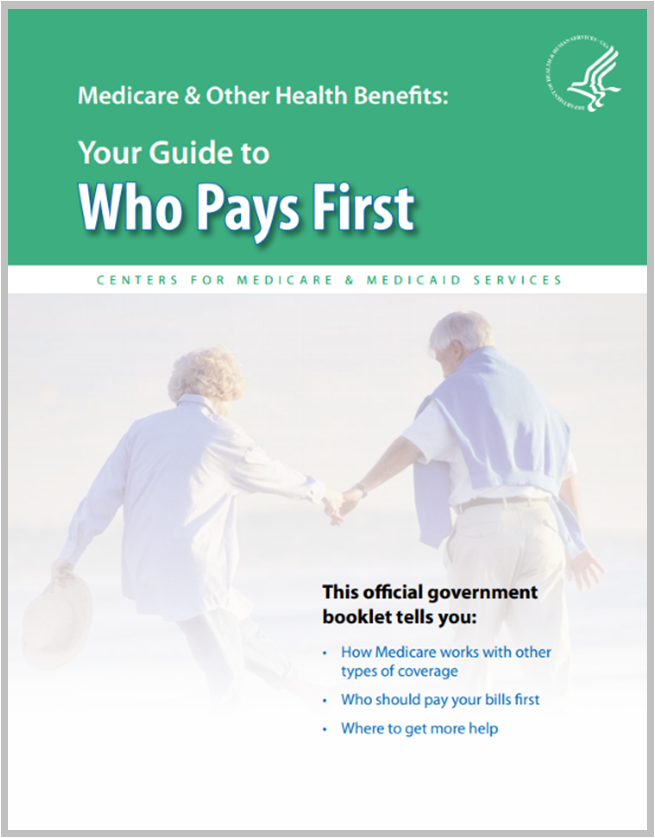Medicare and Veterans’ Health Benefits
Insurance agents will most likely come across a client new to Medicare that is also receiving Veterans’ Health Benefits (also referred to as VA Health Benefits). Agents and clients alike commonly ask if these two benefits coordinate with one another. To help insurance agents explain how Veterans’ Health Benefits and Medicare work together, we have provided information on how both benefits can help your client.
 What is Veterans’ (VA) Health Benefits?
What is Veterans’ (VA) Health Benefits?
Veterans’ Health Benefits are available for those who have actively served in the military, naval, or air services and did not receive a dishonorable discharge. The benefits provide service members with preventive care, inpatient care, specialty care, mental health services, and other health services. These types of care are typically provided only in VA approved hospitals, facilities, and networks available around the country.
Medicare and VA Health Benefits
Your clients with Veterans’ Health Benefits can also enroll in Medicare when they are eligible. Both Medicare and Veterans’ Health Benefits can be used, however not at the same time for the same service. Typically, Medicare pays for Medicare approved services and items, while Veterans’ Health Benefits will cover what they are approved to pay for.
For example, if your client typically goes to a VA approved facility for their annual doctor’s appointment Medicare will not pay for their doctor appointment. Instead, the cost associated for that doctor appointment will be billed to the client’s Veterans’ Health Benefits.
The office of Veteran Affairs (VA) recommends that beneficiaries should always sign up for Medicare when eligible and not avoid enrollment because of their Veterans’ Health Benefits. Since the VA is heavily reliant on Congress approving adequate funds, anyone that is receiving care for one of the lower priority Veterans’ Health Benefit groups could lose their coverage, causing issue with them enrolling in Medicare in the future and facing possible penalties. With the threat of Veterans’ Health Benefits being lost due to lack of funds, the VA always recommends the client enrolls in Medicare even if they primarily use their Veterans’ Health Benefits.
 Should your client receiving VA Health Benefits enroll in a Medicare Supplement?
Should your client receiving VA Health Benefits enroll in a Medicare Supplement?
While the VA recommends that beneficiaries should enroll in Medicare when eligible, the option of a purchasing a Medicare Supplement is up to the client. A substantial benefit from your client purchasing a Medicare Supplement is having insurance coverage anywhere Medicare is accepted and covering the remaining 20% not covered by original Medicare (benefits will vary by Med Supp plan). However, the downside is paying for a monthly premium that might not be in the client’s budget.
Should your client receiving VA Health Benefits enroll in a Medicare Advantage plan?
Medicare Advantage or Part C could be an option for your Veteran client. Rather than having Medicare Part A and B, the client will present their Medicare Advantage card anywhere that is in their plan’s network. Part C plan options could have a restrictive network, but Medicare Advantage will pay for their approved costs if the client goes to a location that is in the plans’ network. If the client goes to a VA approved health facility, their charges will be billed to their Veterans’ Health Benefits.
Should your client receiving VA Health Benefits enroll in Part D?
Medicare beneficiaries can delay their Part D enrollment since Veterans’ Health Benefits is considered creditable coverage. However, there are benefits for a client to enroll when they are eligible. One significant benefit is your client will have access to prescription drugs that are not approved on the VA formulary and can be filled at pharmacies in their Part D network. Remind your clients there are affordable Plan D options available in case they need prescriptions not approved by the VA.
Emergency Use of VA Health Benefits
Veterans’ Health Benefits may cover the cost of an emergency room visit in a non-VA approved facility. However, one stipulation is, “…the client has no other coverage under a health plan including Medicare.” If a Medicare beneficiary goes to the hospital for accident or injury that is life threatening, they could be responsible for the majority of out-of-pocket costs Medicare doesn’t cover, like the Part A Deductible, and other remaining 20% of the costs.
Who Pays? Medicare or VA Health Benefits?
 Your client can have coverage from both Veterans’ Health Benefits and Medicare. The big stipulation is both plans cannot be used for the same service. Medicare cannot pay for the same coverages as Veterans’ Benefits, nor is it a secondary payer. If your client’s doctor’s appointment is at a VA hospital or approved facility, then they will use their Veterans’ Health Benefits. If, for example, that same client needs to have surgery at a facility not approved by the VA then Medicare will cover that cost if preformed in a facility where Medicare is approved.
Your client can have coverage from both Veterans’ Health Benefits and Medicare. The big stipulation is both plans cannot be used for the same service. Medicare cannot pay for the same coverages as Veterans’ Benefits, nor is it a secondary payer. If your client’s doctor’s appointment is at a VA hospital or approved facility, then they will use their Veterans’ Health Benefits. If, for example, that same client needs to have surgery at a facility not approved by the VA then Medicare will cover that cost if preformed in a facility where Medicare is approved.
With all this being said, there might be a possible scenario where both Medicare and Veterans’ Health Benefits will be billed for the same service. For example, your client is having surgery at a VA approved facility. However, only some of the expenses from the procedure being performed are covered by the client’s Veterans’ Health Benefits. In this case, Medicare should be billed to cover the remaining medical costs that their Veterans’ Health Benefits will not approve. But only because the Veterans’ Health Benefits never covered that cost initially.
If you are an insurance agent working with a Veteran, let them know they can have both their Veterans’ Health Benefits and Medicare as their health insurance. Explain to your client why it’s important to have both options available to them, and additional coverage options like a Medicare Supplement, or enrolling in Part C or Part D plans are up to the individual. Finally, remind your client to never drop their Veterans’ Health Benefits, as they might not be able to return to the coverage later.
For more information and to help your client about “Who Pays First” check out: https://www.medicare.gov/Pubs/pdf/02179-medicare-coordination-benefits-payer.pdf (page 26).
 Additional Sources
Additional Sources
There are plenty of sources available for you and your client about Veterans’ Health Benefits. Here are some of the sources we referenced in this blog post:
- https://srbenefit.com/wp-content/uploads/2021/05/vhbh_sample_handbook_2014.pdf
- https://srbenefit.com/wp-content/uploads/2021/05/medicarednotice.pdf
- https://www.va.gov/health-care/eligibility/
- https://www.medicare.gov/supplements-other-insurance/how-medicare-works-with-other-insurance
- https://www.medicare.gov/drug-coverage-part-d/how-part-d-works-with-other-insurance